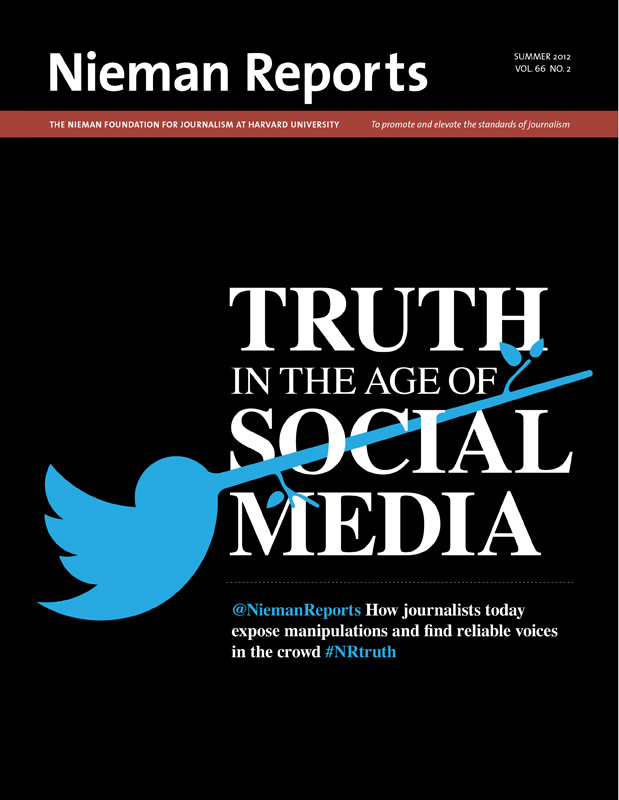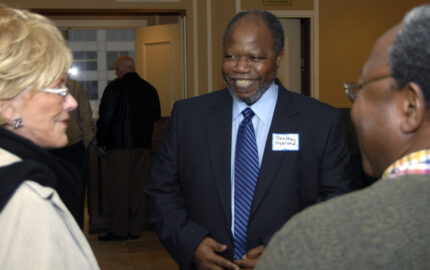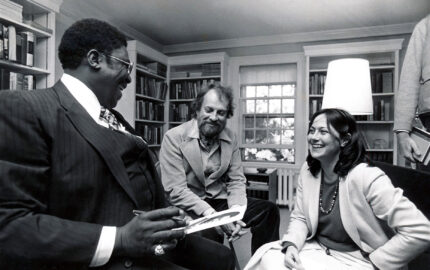
From left, prize winners Daniel J. Sharfstein, Jonathan M. Katz, and Sophia Rosenfeld. Jonathan Alter, right, is chairman of the J. Anthony Lukas Prize Project Committee. Photo by Lisa Abitbol.
J. Anthony Lukas's "Common Ground" was a model and inspiration to Daniel J. Sharfstein, winner of this year's J. Anthony Lukas Book Prize.
Sharfstein's "The Invisible Line: Three American Families and the Secret Journey From Black to White" tells the story of blacks who over the centuries have passed as whites. Largely by mining online databases, he found enough details to spin a narrative about three black families who passed as white.
A professor at Vanderbilt University, Sharfstein recalled that he became enamored with "Common Ground: A Turbulent Decade in the Lives of Three American Families" in the late 1980s after his brother returned home from college, clutching it "as if it were a sacred text." He said Lukas's book has long influenced his thinking "about the complexities of race in the United States and the possibilities for telling stories about how we see ourselves and order our worlds."
The Lukas prize is one of three administered jointly by the Columbia University Graduate School of Journalism and the Nieman Foundation as the Lukas Prize Project Awards. In remarks at the awards ceremony in May, Nicholas Lemann, dean of the journalism school, said Lukas had been a "close friend and hero" of his. Ann Marie Lipinski, NF '90, curator of the Nieman Foundation, said her Nieman class had had the pleasure of spending an afternoon with J. Anthony Lukas, NF '69.
"Common Sense: A Political History" by Sophia Rosenfeld, a professor at University of Virginia, is this year's winner of the Mark Lynton History Prize. The judges praised the book as an "extraordinary, wide-ranging and original work" that shows how central common sense is to the "evolution of our modern understanding of politics."
The Work-in-Progress Award went to Jonathan M. Katz for his book, "The Big Truck That Went By: How the World Came to Save Haiti and Left Behind a Disaster" to be published by Palgrave Macmillan.
In January 2010, Katz, then a correspondent for The Associated Press, was on his computer upstairs at his home outside Port-au-Prince when he heard what he thought was the rumbling of a passing truck. "What we were hearing was the first shockwave coming from the epicenter [of the earthquake]," he said.
The awards were established to honor the late Lukas by recognizing excellence in narrative nonfiction books.



